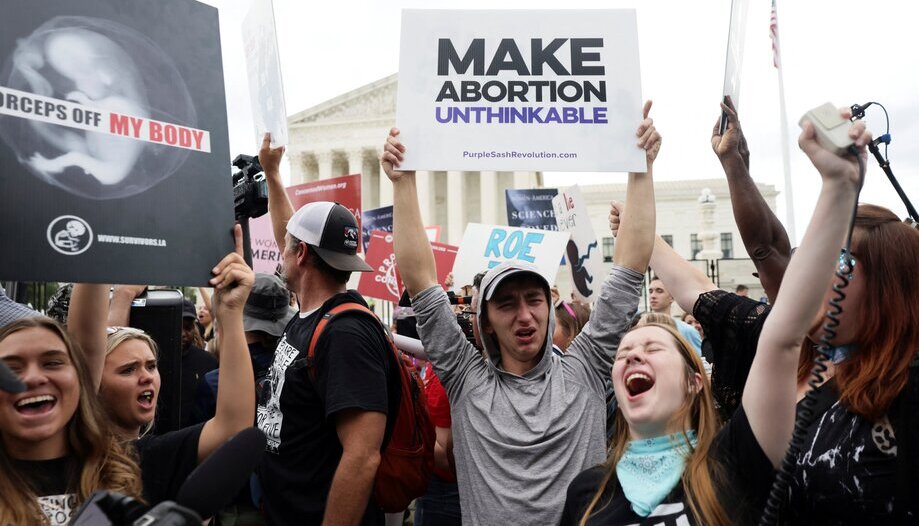Abortion continues to be a controversial topic - despite the fact that some insist that it is a settled issue of interest only to a few fanatical radicals - since 1920, when the Soviet Union became the first country in the world to legalize this practice, which until then was almost unanimously considered a crime. A century later, its legal status varies from country to country and has changed over time. These laws range from free abortion at the woman's request to regulations and restrictions of various kinds or outright prohibition under any circumstances.
Abortion in legislation
In countries such as Argentina, Canada, Colombia, Mexico, Cuba, Uruguay, the countries of the former Soviet Union, East Asia and almost all of Europe (except Malta, Poland, Andorra, Monaco, San Marino and Liechtenstein), abortion is legal at the request of the pregnant woman. In most countries in Latin America, Africa, the Middle East and Southeast Asia, abortion is illegal and criminalized in some cases. There are also countries where abortion is not legal, but is in fact decriminalized under almost all circumstances and doctors who perform abortions are not prosecuted: Barbados, Finland, India, Israel, Japan, United Kingdom, Taiwan and Zambia.
Only six nations in the world prohibit abortion under any circumstances and establish prison sentences for any woman or person who performs, attempts to perform or facilitates the practice of abortion: Vatican City, El Salvador, Honduras, Nicaragua and the Dominican Republic.
About 56 million abortions are performed each year in the world, and in many places there are still debates about the moral, ethical and legal issues involved in abortion. Some countries legalized abortion, banned it and then legalized it again (such as some of the countries that made up the former Soviet Union). China completely liberalized it in 1970 but, due to a deep demographic crisis, in 2021 it established a ban on abortion not performed for medical reasons.
The French State has approved this year by a majority of 80 % the enshrinement of the right to abortion in its Constitution. With this legislative sanction, apart from political expediencies of a President Macron in low hours, it is intended to shield the alleged right of women to end the life of their children against possible limitations that could be established by future governments, more sensitive to the respect for human life and who want to follow the line taken on June 22, 2022 by the Supreme Court of the United States by declaring that abortion is not a constitutional right. Since then, the country on the other side of the Atlantic has been divided between states with legislation restricting abortion and favoring the right to life of the unborn and those seeking to protect access to abortion. On February 16, 2024, the Alabama Supreme Court declared in a controversial ruling that frozen embryos are human beings and deserve protection, jeopardizing the business of assisted reproduction clinics in that state.
Public opinion
As is well known, on this sensitive issue, Western public opinion is currently divided between those who defend a woman's right to decide whether to give birth to her child or end her life, and those who defend that not even a woman can decide on the life or death of the life she is carrying inside her. After decades of arguments about the danger to women posed by clandestine abortions, many people have come to the conviction that abortion is a woman's right and that it is preferable to guarantee it in the public health system than to have it performed with risks in the underground.
The conscientious objection of the majority of physicians in the public health system is presented as an obstacle to the exercise of this practice. Many have become convinced that the pregnant life in the woman's womb is not a human being but a collection of cells and even that ending its life can be a merciful act to spare that mother and child an insufferable life. It is the psychological process that allows a person to end the life of another without suffering an indelible feeling of guilt for the rest of his or her life.
It seems that, in this respect, we are coming to the end of the road begun in the Enlightenment toward total autonomy of the self. We are now totally free to do whatever we want with our bodies and our lives, including the right to end our own lives and those of the unborn presumably so that they do not "spoil" the future lives of their mothers. At the same time, mental health rates are worsening and more and more people are living and dying alone. A large majority of young people envision a bleak future for themselves and express their fear of being alone when they reach old age.
Respect for life
Jérôme Lejeune, whose death we are celebrating the thirtieth anniversary of, a great French scientist and geneticist, defender of human life from conception (a conviction that earned him the Nobel Prize for his work in the field of genetics). Nobel), once stated that "the quality of a civilization is measured by the respect it shows to the weakest of its members". It has become a cliché to say that we are at a change of epoch and at the end of a civilization. Perhaps the way in which we face the terrible reality of abortion is a kind of crossroads of civilization and the frontier that separates it from barbarism.
Let us not lose hope that, after having recognized in the West the right to total self-determination of the individual, we will come to the conclusion that the reality is rather that human beings are totally dependent and we need to sacrifice for each other -and not to each other- in order to get ahead and be truly happy.
As Hölderlin wrote in his famous poem Patmos, "where there is danger, there grows also that which saves".







